|
“The Advocate, the Holy Spirit…will teach you everything.” -John 14:26 After two years of dedicated study of theology, I received my Master’s degree. This has always seemed a bit odd to me, because I often feel I still have so much to learn. This seems like the case for Jesus’ followers as well. After 3 years of discipleship, they didn’t know “everything.” Though they could be considered the “masters” of Christian life–having spent three years walking alongside Jesus—Christ tells them they still need the Holy Spirit in order to learn “everything.” He was explaining to them a fundamental reality of the Christian life: it is a life-long process of learning. This reality is sometimes daunting, but more often it is comforting. The men that spent three years at the feet of Christ, who witnessed His miracles, heard His parables, and encountered Him after His resurrection, didn’t have it all together. They were not perfect at discipleship and they still needed God, who would now be revealed to them in the indwelling of the Holy Spirit. Rather than spending physical time with Christ, they would experience something even greater: God dwelling within them. This intimate and powerful presence of God is something we can experience today. We receive the indwelling presence of the Holy Spirit on the day of our baptism and physically receive Christ Himself every time we partake of the Eucharist. Furthermore, Christ tells us in this Sunday’s Gospel that He and the Father will dwell within those who keep His word. This comforts me because I have never heard Christ’s voice, seen His face, or shared His food. Though I am generations and millennia removed from Him, He has sent the Holy Spirit to teach me “everything”—what it means to follow Christ and live the Gospel today. Much like the disciples, I still have much to learn. Though I have grown up knowing about Christ and His teachings, though I have figuratively sat at His feet for more than three years, I still need the Holy Spirit to teach and remind me what it means to be a follower of Christ each day. And in order to cultivate the indwelling of the Holy Spirit, I must continue to keep Christ’s word. This is so much more than the study of theology. As Pope Francis said in a 2015 homily, "We can study the whole history of salvation, we can study the whole of Theology, but without the Spirit we cannot understand. It is the Spirit that makes us realize the truth or – in the words of Our Lord – it is the Spirit that makes us know the voice of Jesus." Learning everything, therefore, means knowing and discerning the voice of Jesus. A life of keeping Christ’s word looks different according to your vocation or status in life, but overall, some things that help us recognize Christ’s voice include an active sacramental life, daily prayer, acts of charity, reading Scripture, and living according to Church teaching. In the nitty gritty of every day, this could mean keeping your cool while driving in rush hour traffic, taking a meal to a family with a newborn, participating in the Sacrament of Reconciliation regularly, giving your spouse the benefit of the doubt, going to Mass each Sunday, or taking a deep breath when your child throws his food on the ground for the third time that day. It could mean reading the daily readings at the breakfast table, praying evening prayer with your roommates, starting a rosary on your commute, participating in a weekly Bible study. In short, keeping Christ’s word is a lifelong, daily decision to do things that bring you closer to Him and encourage you to hear His voice. As we prepare to celebrate Pentecost in a few weeks, let us call upon the Holy Spirit to be our Advocate and Teacher. May we have the humility to call upon Him daily as we pursue this lifelong life of discipleship in order to truly hear the voice of Jesus that says, “Come, follow me.”
0 Comments
From October 3rd until the 28th, 2018 bishops from around the globe are gathering in Vatican City for the 15th Ordinary General Assembly of the Synod of Bishops. The Synod is an assembly of the world’s bishops who assist the pope by offering insights on important questions the Church is facing in a manner that preserves and promotes her teachings. A General Assembly of the Synod of Bishops is called “Ordinary” if its topic is “for the good of the universal Church” and seems to require the “learning, prudence and counsel” of all the world's bishops. For October’s historic meeting, Pope Francis dedicated the theme to “Young People, the Faith, and Vocational Discernment.” Although the young adults invited to participate were not voting members of the Synod, they had the opportunity to address the Order of Bishops as presenters and auditors. It can be useful to consider the gathering as a conversation that included involvement from bishops and small group sessions. These activities were a beautiful continuation of the dialogue and collaboration characteristic of the Second Vatican Council: of a Church embracing renewal throughout the Body of Christ.
Yet the vast majority of the Church was not in the Vatican participating in small groups, sharing experiences, or making presentations. While the meeting has been significant in its own right, it may not be on the forefront of most people’s minds a city—let alone an ocean—away. As we wait for the working documents of the meeting to be finalized and published, we may be asking how we can best support the work of the Synod from afar. As a young person myself, I think it is incredible that this demographic is being discussed and studied at length by the Church. The Synod inspires a unique opportunity to ponder young people’s place in the Church and world. The typical young person is preoccupied with studies or work, family and social obligations, and sorting out his or her place in an ever-changing world. Thanks to technology, the world is better connected in some senses, though what occurs daily in our physical sphere tends to represent the extent to which a young person may physically engage with the outside world. Why think about faraway gatherings when there is plenty to deal with right in front of you? You may also wonder, Why would anyone care about little ole me and what I do? But that’s exactly what—and who—the Holy Father is interested in hearing about. Over a year before the Synod was scheduled to meet, Pope Francis released his Letter to Young People and invited youth to “Make your voice heard, let it resonate in communities and let it be heard by your shepherds of souls.” To help facilitate gathering the input of young people, the Vatican Synod Office launched a special website and survey which invited responses that were incorporated into a working document. Furthermore, Pope Francis issued his latest Apostolic Exhortation, Gaudete et Exsultate, on the call to holiness in today’s world, which directly relates to the vocational aspects of the Synod. Seeking for something more concrete? Look no further than your own parish! The walls of a church are not designed to keep persons out, but to gather them in to live more actively in Christ and the Church Universal! Never doubt the awesome power of prayer: interceding for not only the participants of the Synod, but those around you whose needs you may know personally. Go a step further and offer your gifts, talents, time, and presence as a young person and give witness to charity. Show the world that young people are not self-absorbed but active and invested in promoting the good of humanity. Find others who want to make a difference. Invite them to pray with you, to volunteer in service, to catechize, and even just to share in the joys and fun of youth. Demonstrate that youth is not just a period of transition, but an opportunity to channel passion and energy in a meaningful and responsible way for the Church and world. A lesson from the 2018 Synod is that the Church wants to better minister to young people! Recognizing young people as a treasure not merely for the future, but for the Church here and now signifies their potential and important state in life. Instilling the values of the Faith in young people inspires them to more actively discern God’s call for them in holy vocations. The world is not perfect—neither is the Church—but recognizing the good that can be brought about and the ability to pick oneself up after falling short is a great gift God has uniquely given young people to witness! By growing in our vocation to holiness, we fulfill the mission and dream of this year’s Synod. What a joy it is to see young people take to heart the holiness that God has called them to. To learn more about the recent Synod on Young People, the Faith, and Vocational Discernment, please click here. When I was in 8th grade, I helped teach for my parish’s religious education program and counted the hours toward my required community service time before receiving the Sacrament of Confirmation. I was an assistant for the 5th grade, and I thought it was the coolest thing. I could share with the class what I knew about the Church, even teaching them at one point how to pray the Rosary. Looking back, it seems like I was destined to teach in a Catholic school! After college, I began working at my current school in the Archdiocese of Washington (ADW), where I continue to teach and share my faith with the students. To this day, I continue to teach religion. I strive to form my students as disciples according to six elements of Catholic life: Knowledge of the Faith, Liturgy and Sacraments, Morality, Prayer, Education for Living in Christian Community, and Evangelization and Apostolic Life.
For catechists who actively pass on the Word of God to others, teaching the faith can become almost second nature. For instance, at my school, we incorporate core Jesuit principles into the curriculum each day and reflect on our own actions through prayer. In my pre-K classroom, we use these principles to talk about kindness and loving others as St. Ignatius taught. In a special way, my students are learning how to be good friends and love others the way Jesus did. In the Archdiocese of Washington (ADW), the religious curriculum has standards by which its content is measured and assessed—like any other subject area in school. In fact, ADW is trying to support catechists to do more to collaborate and keep kids engaged and excited about learning their faith. Professional development of catechists is crucial to a school, parish, or community. Learning how to be better witnesses of the faith ensures that our children are receiving the best formation of conscience they can get. Although there are people certified and educated to teach as catechists, most of us are already fulfilling that duty as faith-filled adults in the Church who witness to and spread the Gospel. Below is a list I have compiled of a description of a catechist. After reading it, do you feel called to become one?
For more information, we invite you to view the following webinar at the bottom of the page:
Question for Reflection: How can you teach the faith to others in your everyday life? *This post was originally published in May 2017* As we continue through the Lenten season, it is natural that the newness of Lent has worn off. Maybe, if you’re like me, you have caught yourself on more than one occasion frustrated for “failing” at your Lenten plan. The reality is that Lent is not just about what we can do in terms of prayer, fasting, and almsgiving, but who we are becoming. In short, Lent is meant to teach us to love—to love in the desert, to love the daily crosses of life, and ultimately to join with Love Himself through the joy of the Resurrection. Let’s spend some time reflecting on these three types of love. To love in the desert. Even after the 30 years He spent in Nazareth, before He started His public ministry, our Lord withdrew to the desert by Himself for 40 days to pray, fast, and prepare for his mission. And as He did, we must also do. If we can encounter the love of God in the solitude of our hearts and in the quiet of prayer with Him, we will be better equipped to be able to share His love with the world. Time spent with God in the desert enables us to go out on mission. Lent reminds us—even in the deserts—that God is faithful through it all. To love the crosses. A few weeks ago, a wise priest told me to not just carry my cross, but pray for the grace to also love the cross. I’ll be honest, I shrugged the advice off initially. I don’t think I’m alone: it’s natural for us to struggle with our crosses and wonder why the Lord allows them to happen. But the beauty of Lent is that our prayer, fasting and almsgiving can allow our hearts to grow in this grace, be transformed by our crosses, and even come to love them. Let us meditate on the Passion of Christ throughout the Lenten season, asking Christ to help us embrace our cross in order to join Him in the glory of His Resurrection. To join with Love Himself. The good news for us is that the Christian life was never meant to be lived alone. For this reason, Christ instituted the Church in the Upper Room after his Resurrection. When we unite ourselves and our sufferings with the Body of Christ, we are not only participating in the mission of Lent, but the mission of our lives as Christians. We are called to build one another up throughout our lives of faith, including offering our prayers and sacrifices for the benefit of the Church. That being said, the point of these 40 days is not just to journey with each other, but towards Christ. He is our greatest mission partner, our chief example, and the cause for our joy. To join with Love Himself is the great adventure of Lent and to share in the joy of the resurrection is our great privilege as Christians. May He find us worthy this Lent of learning to love like Him. Questions for Reflection: How is your Lenten journey going thus far? Have you been able to keep your Lenten commitments of prayer, fasting, and almsgiving? Take a few moments to reflect on how you’re growing this Lent. For more resources to guide you along your Lenten journey, click here. My son is just learning to walk. At 15 months, he’s starting to take his first, unsteady steps. He wobbles from chunky leg to chunky leg, looking back at us to make sure everything is alright, and plops on the floor after a few strides. He loves it when we cheer him on, and then he gets back up and begins again. We, too, are beginning again. We have walked into a new calendar year. This Monday, we will celebrate the end of the Christmas season on the Solemnity of the Baptism of Our Lord and enter into Ordinary Time. How are we walking into the new year? As a parent, I know my son is taking his first steps towards walking securely. Little does he know that these steps will prepare him to one day run. I know his trajectory, but the path for him is still unknown. Similarly, God knows our path. He knows what He created us to be and do, what our gifts and talents are. He made us to run, and yet He does not interfere with our free will. We, like my son, are often walking into an unknown future. We take step after step in faith with God walking alongside us. How do we make our journey? Are we stumbling or walking confidently in God’s grace? Do we look to Him when things seem unbalanced and reach for His hand? Even when things seem steady, do we turn back, like my son looks to his parents, and look for God and His reassuring presence? Do we ask God for His help and guidance? God walks with us throughout each chapter of our lives. His coming into the world in the Incarnation, which we celebrated at Christmas, is a beautiful and mysterious proof of the lengths God is willing to go to be with us. He wanted to be intimately involved in the human story—and so He became one of us. He interacted with mankind as a man Himself, ultimately taking on the weight of our sin and opening the doors to salvation. God intervened in a radical and beautiful way by physically walking alongside us in the person of Jesus Christ, and He continues to do so through His church, the sacraments, prayer, and our communities. As we end the celebration of Christmas and enter into the new year and Ordinary Time, I invite you to reflect on how you are walking into this season of life. We have spent the weeks of Advent preparing for and celebrating the coming of Jesus Christ into our midst. But have we left Him in the manger? Have we forgotten to bring the Christ child home with us or kept room for Him in the inn of our hearts? Let us allow God to be intimately a part of our lives throughout this upcoming year. May we walk with Him and towards Him each day, whether we are stumbling or walking confidently, so that we, like my son, may come one day to run. Question for Reflection: How can you walk more closely with God and toward Him this year? A man named John was sent from God. He came for testimony, to testify to the light, so that all might believe through him. (John 1:6-8)
The first word that comes to mind upon reading this Gospel is humility. In response to questions from the priests and Levites, John explains that he baptizes not as Christ, Elijah, or the Prophet, but as “the voice of one crying out in the desert, ‘make straight the way of the Lord’.” John is so quick to point out this distinction, so quick to give credit where he feels credit is due. Reflecting back to my years of service as a Lasallian Volunteer and Good Shepherd Volunteer, I think I could have used a slice of this humble pie. How often did I consider myself “the light,” taking on the responsibility to serve, or save, the communities I entered? How often did I fail to see the parts of myself that needed saving, and that this saving work was never really mine to begin with? Thanks to time, perspective, and most of all, the grace of God and those I have encountered, I continue to be humbled - moved beyond my self-righteousness, and into a space of more authentic listening, learning, and loving. These moments, in all their discomfort and vulnerability, become my testimony; through the gift of growth, I can “testify to the light.” Focus on: COMMUNITY In this Gospel, the questions posed by John’s community invite him to name who he is and what he is about. Community often provides this challenge and gift - holding a mirror up to our past, present, and future and reflecting how all these complexities meld and meet the world. How do your communities help you own your truth? In community, how can we help each other “testify to the light” within? SERVICE SUGGESTION: Spend some time reflecting upon someone in your community who has helped you grow more into who you aspire to be. Write a note of appreciation, take them out to coffee, or find some unique way to affirm them and acknowledge the influence they have had. PRAYER: Our Power to Bless One Another by John O'Donohue (Excerpt from To Bless the Space Between Us) In the parched deserts of post-modernity a blessing can be like the discovery of a fresh well. It would be lovely if we could rediscover our power to bless one another. I believe each of us can bless. When a blessing is invoked, it changes the atmosphere. Some of the plenitude flows into our hearts from the invisible neighborhood of loving kindness. In the light and reverence of blessing, a person or situation becomes illuminated in a completely new way. In a dead wall a new window opens, in dense darkness a path starts to glimmer, and into a broken heart healing falls like morning dew. It is ironic that so often we continue to live like paupers though our inheritance of spirit is so vast. The quiet eternal that dwells in our souls is silent and subtle; in the activity of blessing it emerges to embrace and nurture us. Let us begin to learn how to bless one another. Whenever you give a blessing, a blessing returns to enfold you. *This post was published in the 2017 Advent Reflection Guide, a collaborative effort between the Catholic Volunteer Network and the Catholic Apostolate Center. Click here to view the full guide. Katie Delaney is a former Lasallian Volunteer and former Good Shepherd Volunteer. To learn more about faith-based service opportunities through the Catholic Volunteer Network, please click here. At some point during my time as a college student, I encountered the great saint and medieval theologian St. Thomas Aquinas (1225-1274), and began to realize just how truly important and vast was his intellectual impact in history. As a witness to the profound and enduring quality of Thomas’ theological insight and teaching, the Catholic Church honors him with the title “Doctor of the Church.” Thomas certainly spent much of his life in a classroom teaching and debating on the most relevant questions of his day. But when it came to his primary vocation as a Christian, the soft-spoken saint would be quick to point out that he was first and foremost a student. The word disciple literally means “learner” or “student.” In the Bible, a disciple is, “A student or follower who emulates the example set by a master and seeks to identify with the master’s teachings.” (Catholic Bible Dictionary, ed. Scott Hahn) For Thomas, discipleship meant being an entirely devoted student of Jesus Christ. One of Thomas’ theological principles was that everything Jesus said and did was meant for our imitation and instruction. In the time of Jesus, a disciple did not just learn from, but learned to be like their teacher. We see this, for example, at the Sermon on the Mount, which is an extended lesson about a radically new vision for life received at the feet of their teacher (“Rabbi”), Jesus. Today, the Church’s emphasis on the New Evangelization to make and grow as disciples also means we are to become in every way students of Jesus. Here are three important ways Aquinas modeled being a student of Jesus, a disciple, worthy of our imitation. A Student of Scripture For Thomas, Sacred Scripture makes known “that heart of Christ” (see CCC 112), and we acquire that heart gradually by reading and studying the Bible. In addition to composing many commentaries on individual books of the Bible, all of Thomas’ writings demonstrate a life soaked in a love and knowledge of Holy Scripture. Thomas realized the impossibility of growing as disciples of Jesus apart from familiarity with the living Word of God. A Student of Prayer Even with a multitude of followers and demands, Jesus was frequently found in personal prayer with the Father. Similarly, as prolific a writer as Thomas was, Thomas never sacrificed his time of prayer and contemplation for the sake of work or greater productivity. As a result, aside from his dense technical writings in theology, Thomas composed captivating prayers that the Church uses in liturgy and devotions even today. Thomas loved to pray through song, and among his most well known prayers include the famous Eucharistic hymns “O Salutaris,” “Tantum Ergo,” and “Adoro Te Devote.” A Student of Truth Jesus is the Truth (John 14:6). In a culture saturated with opinion and often biased news, we can learn from Thomas’ unceasing search for truth. A love of the truth compelled Thomas to devote himself to understanding the world around him (even where he disagreed), to be slow to judge, quick to learn, but steadfast in his convictions and trust in Jesus. Whether you are in school or beyond, Thomas models what it means for a disciple to seek the truth. That could mean doing more research about our opinions, being more willing to have our perspective challenged, or just trying to learn something new every day. Thomas even has a great Prayer for Students that we can all apply to whatever situation Jesus is calling us to keep learning about. To learn more about prayer, please click here. One of the most exciting, profound, yet sometimes awkward and unnerving places of parish ministry involves welcoming new Catholics officially into the Church through what is called the Rite of Christian Initiation of Adults, or RCIA for short. Many parishes are now gearing up for the next season of RCIA, which generally runs from early Fall and concludes with the Easter Vigil (this year on April 15, 2017). Over the years, I’ve had the opportunity to serve and lead RCIA in a few parish settings and have been blessed to accompany some friends and family members through the process. But every year there are things I learn and need to be reminded of to facilitate a truly transformative time for the candidates and catechumens. Below, I’d like to offer some perspective, as well as a few pitfalls to avoid that have made a difference in the way the teams I’ve been a part of approach this important ministry. Speak their Language For those of us who grew up Catholic or actively learn and read about our faith, we become very familiar with the vocabulary and theology of the Church that is typically foreign and confusing to newcomers. Don’t assume people know what you are talking about, or what a word or acronym (even RCIA!) means. People are learning a new language of faith, which requires patience, clarity, and practice. Without patience and clarity, people feel alienated and lost, not impressed, and you risk having your faith come off as pretentious and antiquated, not living and effective. Teach Them to Pray Going off the last point, we should remember that prayer is the primary language of the faith. This is based in the ancient Catholic spiritual axiom, “Lex orandi, lex credendi.” The truth is, we assume people know how to pray, but prayer takes learning and practice, just like anything else. Prayer is necessary for living out the Catholic life beyond RCIA, but instead of just telling people to pray, we need to actively teach new Catholics how to pray by praying with them. Do some form of prayer together each week—the Rosary, Lectio Divina, a litany—to expose people to the richness of Catholic spiritual life. If we leave participants with anything, let it be the desire and ability to pray. Learn Their Story As passionate teachers of the faith, RCIA leaders often love to share their experience and favorite subjects about the Church and our faith. That’s important, but we often risk talking when we should simply be listening. Be mindful in giving the candidates and catechumens plenty of time to speak and share their story with one another, not just for a brief minute the first day, but also as part of an ongoing process that extends the whole course. Think Outside the Classroom Learning the content of the Catholic faith is essential, no doubt about it. But often our approach gives the impression that church teachings only live in the pages of textbooks. If all learning about the faith happens in the classroom, it has a tendency to stay there. Look for ways to make connections between Catholic beliefs and tradition and real action and practices. Learn about the corporal and spiritual works of mercy by scheduling time to go out as a team, do a few of them together, and then reflect on them. In Baltimore where I live and work, we are surrounded by some amazing Catholic historical and religious sites. We decided, “Why not incorporate that into our RCIA experience?” Instead of just reading about the saints, we planned field trips to the churches and homes of local saints. RCIA became a more memorable experience that expanded horizons and made people feel at home in their new faith family. Build a Strong Team Your most valuable asset is a dynamic and cooperative RCIA ministry team. I’ve heard of RCIA teams that actually actively disagree and challenge one another over church teachings in front of the class. Different personalities and gifts are important, but they should work in unity. Be mindful of what kind of personalities and gifts will resonate with the experience of people going through your program. Think Ahead New converts are frequently powerful and fresh witnesses to the joy of their faith and are often ready and excited to get involved. Before the RCIA process is over, start looking for opportunities to move new Catholics into the service opportunities and ministries of your parish. Did you know that as Catholics we commemorate the month of October as the month of the rosary? The rosary calls us to reflect on the life of Christ through the intercession of Mary, our Blessed Mother. The rosary is an invitation for us to build a relationship with Mary, so that we can better know her son. St. Thomas Aquinas once said, “As mariners are guided into port by the shining of a star, so Christians are guided to heaven by Mary.” One way to get to know Mary is by reading about her life from scripture. Mary’s words are not recorded often, and her actions seem to skim by even more subtly. Even so, the presence of her words and actions are profound, calling us to a deeper relationship with her and her son.
First, we learn from Mary that it is okay to ask questions on our faith journey. When the angel Gabriel announces to her that she will be the mother of the Son of God, she simply asks, “How can this be, since I have no relations with a man?” (Luke 1:34). To know ourselves and have confidence in what we believe, we should always be asking questions. As a teacher, I encourage my students to ask questions all of the time. Although I am not as good as I want to be myself, from Mary I can take courage to ask more questions so that I can learn and grow in hopeful faith. When Mary questioned the angel, she learned: “Nothing will be impossible for God” (Luke 1:37). And from there, we are called to take Mary’s example of humility and trust in her “Fiat” when she says, “Behold, I am the handmaid of the Lord. May it be done to me according to your word” (Luke 1:38). The second lesson that I have learned from Mary in the Bible has had the most profound impact on my life. After the birth of her son, and in the presence of the shepherds and angels, Luke records that “Mary kept all these things, pondering them in her heart” (Luke 2:19). For me, this calls me to a life of deep reflection and intimacy with God. What I keep in my heart can move me closer to God if I invite him to share it with me: the goodness of each day, the little and big miracles, and even the hard and difficult trials. With God, everything is divine and happens with purpose; it is how I react, reflect, and let him mold me with the contents of my heart that I can become most pure. Mary is the perfect model of this. She remembers God’s glory, and holds it fast to her heart. Her life is characterized by this. I want to revel in God’s glory in all things like Mary, so that I can share this joy and love with others, and trust in his goodness when trials arise. Finally, Mary’s last words in the Bible occur at the Wedding of Cana when the reception has run out of wine. She tells her son of his time to perform his first miracle, "They have no wine" (John 2:3), and it seems as though Jesus is not convinced. But next, Mary tells the servers, “Do whatever he tells you” (John 2:5) with the utmost simplicity and confidence. Not only does she know that he is capable of great things, but she knows that her son will do great things. And so we must “do,” too. This message – “do whatever he tells you” – is a call for all of us to follow the words of Christ. Mary can only lead us to her son if we submit to his will with the trust and confidence she has modeled for us. Like Mary, we too must live our life as a Fiat, “Lord, let it be done to me according to your word.” What beautiful gifts Mary gives to us to know her faith and to let her mold us to be more like her son. Do not be afraid to let Mary be the one to lead you to Christ. She is perfect, in that she knows how to live her life for God: “Mary’s greatness consists in the fact that she wants to magnify God, not herself” (Deus Caritas Est, 41). Let her help you magnify the Lord. Today I will be praying the “Magnificat,” which is found in Luke. It is Mary’s prayer of joy and thanksgiving to God. Please join me in asking for Mary’s guidance towards her son, to lead us to a life full of grace as hers. Mary’s Magnificat “My soul proclaims the greatness of the Lord, my spirit rejoices in God my Savior for he has looked with favor on his lowly servant. From this day all generations will call me blessed: the Almighty has done great things for me, and holy is his Name. He has mercy on those who fear him in every generation. He has shown the strength of his arm, he has scattered the proud in their conceit. He has cast down the mighty from their thrones, and has lifted up the lowly. He has filled the hungry with good things, and the rich he has sent away empty. He has come to the help of his servant Israel for he remembered his promise of mercy, the promise he made to our fathers, to Abraham and his children forever.” Luke 1:46-55 Alyce Shields is a teacher in Washington, D.C. While studying the New Testament during my sophomore year of Catholic high school, our teacher assigned us a project to make our own Stations of the Cross prayer book. We were to create a modern version of the Stations of the Cross by choosing pictures that reflect each station in contemporary times. I remember wanting to make the Stations of the Cross relevant to me as a high school student and looking for pictures of the Stations as they appear today.
I have always enjoyed history and for this project I found that the Via Dolorosa (Latin for “Way of Grief”) is the street found in the Old City of Jerusalem considered to be the route Jesus walked on the way to his crucifixion. I selected current images of where each station is believed to have taken place. The route is marked by nine of the fourteen Stations of the Cross with the last five Stations found inside the Church of the Holy Sepulcher. Reflecting on the modern photo of each station helped me to create a sort of pilgrimage, creating a visual image of the path Jesus walked to his death. Just as the Via Dolorosa gives us a glimpse of the visual path Jesus walked, we can relate to events and people of the past by associating with the current burdens of our world in order to promote deeper learning and engagement. Just as Jesus was wrongly accused and tortured, so are many around the world through persecution, violence, ignorance and injustice. When Jesus walked with the heavy cross on his shoulders, he carried the heavy burdening sins of others. We, too, can often find ourselves burdened with loads that we created for ourselves and others. We may fall under the heavy loads of work, family, relationships, financial issues or worry. We must learn to graciously accept assistance and thank those who help us like Jesus when he let Simon help him carry the burden of the cross. Likewise, we must remember to help those less fortunate or reaching out to others in unexpected ways. When our egos, dignity and faith have been bruised, we experience the same agony and hurt as Jesus when he fell to the ground a second time. We need to ask God to help us practice the gift of humility. How can we put these reflections into action this Lenten season? Taking just five minutes to pause and reflect on all that we are thankful for can help us understand how we are truly blessed. When I reflect on the Stations of the Cross, I ask God to help me love as I have been loved, to forgive as I have been forgiven and to be in continual awe of God’s marvelous works. During this Lenten journey, I think it’s helpful to find the things in our faith that remind us of God’s love and help us reflect. My pocket Stations of the Cross helps me to do just that. Dana Edwards is a recent graduate of the University of Florida. She currently resides in Tallahassee, Florida where she works as a Digital Strategist, and volunteers as a lector and with communication outreach at her local parish, Good Shepherd Catholic Church. My entire life I have always had a yearning in my heart to become a teacher, and this summer was the beginning of that dream becoming a reality. I spent all summer soaking up every classroom management technique I was given, as well as learning the best ways to make math fun for secondary students. I entered the classroom in August, and I realized that implementing those tools was nothing less than difficult. I pray that my students learned half as much from me as I learned from them. Although this job is not easy, my students inspire me to wake up every day and teach them something about translating algebraic expressions, but even more so, about love and the goodness of life.
However, my teaching cohort met at the end of the semester to pre-plan for January, and we were reminded that inspiration is not enough to do this work. We need passion and drive to see us through this work so that we may do it well. Every. Single. Day. One professor challenged us saying, “Your teaching is a song. What song gets you going every single morning and keeps you going throughout the day? The week? The month? The year?” I realized that our faith, too, needs a song. We need an Advent Song – a gift from the beginning that continues to fuel us throughout the day, the week, the month, the year. As Advent comes to a close, we celebrate the joy of Christ’s birth, but after that, will we continue to live our Advent Song each day? In yesterday’s Gospel, we learn of Mary’s Advent Song – “The Magnificat.” She sings, “My soul proclaims the greatness of the Lord; my spirit rejoices in God my savior…” (Luke 1:46-47). Her life was exemplified by this song. If you read beyond today’s Gospel, Zechariah, the father of John the Baptist, also sings out, “Blessed be the Lord the God of Israel, for he has visited and brought redemption to his people” (Luke 1:68). Each sing of the Lord’s goodness and faithfulness, which we know endures forever. As you reflect on the close of this Advent season, transitioning into Christmas, ask God what song will keep your heart burning and returning to him throughout the year. What will help you know the Lord each day and what will help you give Him to others? What song will fill you with joy so that you may also sing with Mary and Zechariah? As Advent comes to a close, know of my prayers for you: that you may find your Advent Song and sing God’s goodness and faithfulness throughout the year long. Alyce Anderson is a teacher in Washington DC. To learn more about Advent, please see our Advent Resource Page! A few nights ago, I had the great joy of attending my final university-wide Mass as an undergrad at The Catholic University of America. The Church was packed for this 9pm liturgy, and it ended with a final blessing of the graduates. Amidst my tears as I looked out to the full chapel, I was overcome with gratitude for the ways that God has worked in my life the last four years. Above all, I was overwhelmed with the reminder that God is bigger.
Life isn’t always easy, that’s for sure. And I’ve definitely had my fair share of difficulties these past four years. College is one big learning curve – classes, friendships, discernment about the future, and wondering how much caffeine your body can really hold. I have learned so much about myself and my relationships with others, but more importantly I have joyfully resigned myself to the fact that no matter the difficulties, God is bigger than anything that we face. God is bigger than the 3 a.m. writer’s block, bigger than the failed friendship, and certainly bigger than our own human weaknesses. We are steeped in a world that tries to tell us that we can do it on our own—that we don’t need each other and that we definitely don’t need God. The reality is this—none of my successes or failures over these last four years have been done on my own, and nothing I hope to accomplish in the future will be on my own. I have been blessed with an incredible community of family, friends, teachers, and spiritual mentors who have encouraged and supported me in ways that I don’t deserve. But most importantly, I have been graced with the knowledge that we serve a God who is bigger than all of it. It is all too easy to get caught up with day-to-day minutiae, to become so concerned with what is happening in our own lives that we forget to take a step back and remember that we aren’t the ones who are really in control. I know in my own life I often focus on the difficulties in the world around me and in the lives of those that I love instead of remembering that the promise of the Incarnation is that God chooses to never leave us. He is bigger than our relationship problems, bigger than our sin, bigger than life’s difficulties, bigger than the sad stories that we hear on the news, and bigger than anything we have planned. Most days I’m overwhelmed with this knowledge, and overwhelmed with gratitude that the promise He made to His disciples 2000 years ago to “remain with us always, even until the end of the age” still rings true for us today. God is bigger, and He is a mighty God indeed. Lauren Scharmer is a senior at the Catholic University of America studying Social Work & Theology and is active in both retreat and youth ministry in both the Archdiocese of Washington, D.C. and Diocese of Arlington. Growing up in a stereotypical American Catholic family, my parents always kept our faith at the center of family life. While we didn’t go so far as nightly recitations of the rosary together, I did have a very faith-centered childhood. My weeks generally pivoted around two regular Church activities: Sunday morning Mass and Tuesday night Religious Ed. We always ate dinner together as a family and prayed before the meal no matter what. When my sister and I were young, they read us stories out of our children’s Bible, and as we got older, they encouraged us to receive the sacrament of Confirmation and continue our faith journey as adults when we each went to college. Overall, I daresay they were successful: my sister and I still attend Sunday Mass on our own, and I’ve maintained further involvement in Church through the Knights of Columbus.
While my mom and dad had very different approaches to sharing the faith with us, they consistently worked as a team to make sure we had a Christ-centered upbringing. The reason for this, as I look back, is obvious: they have always had a Christ-centered marriage. Both came from Catholic families of 5 or more (Dad was one of 12!) and have always relied on their relationships with God to guide them through life’s difficulties and joys. There is always a Bible on hand, and numerous crucifixes and pictures of Mary are scattered throughout their home. The presence of God in our daily lives is something regularly acknowledged in everything we do as a family. I don’t know what kind of marriage prep they went through before their wedding, but it is clear that they understand marriage for what it is: a Vocation, a calling from God. Everything my parents do, they do for each other. Whether it was Dad helping with the laundry on Sunday mornings, Mom keeping a plate warm when Dad worked late or had a Scout meeting, or giving each other breaks from me and my sister, their lives have always been focused in on our life as a family. I once heard that the home should be like a “miniature Church”. My parents have gone above and beyond in making that a reality for our family, whether any of us realized it or not. In the Church, we always make a point of praying for Vocations to the priesthood and religious life, but I believe we’re often forgetting the other all-important Vocation to married life. That is not to say that we don’t need to pray for more holy priests, brothers, and sisters; we do! But I propose that we pray just as hard for true, faith-formed Vocations to marriage. With all the broken families we see in our society, it almost seems a miracle to meet couples who have remained faithful and totally in love. Those are the couples who, whether religious or not, view their marriage as a higher calling to give themselves totally to one another. In Gaudium et Spes (aka The Pastoral Constitution on the Church in the World), promulgated by Paul VI during Vatican II, we hear that “married people can become witnesses of the mystery of love which the Lord revealed to the world by His dying and His rising up to life again.” This speaks directly to the self-giving nature of a true Christian marriage; spouses are called to mimic the love between Christ and the Church, the bride which He died for. Any happily married couple can attest to the great deal of self-sacrifice needed to maintain a healthy marriage. What our world so desperately needs is right in front of our faces: with families splitting up left and right, marriage has been devalued to no more than a “feel good” reaction. The understanding of marriage as a calling to daily self-sacrifice must be emphasized if we are to reverse the trend of so many broken families and such a high divorce rate. My parents, who celebrate 25 years of marriage today, are one of the millions of couples throughout the world who strive to answer their daily call to empty themselves for one another as Christ did for each of us. Please join us in praying that their collective example will inspire young couples to focus their intentions on creating that same kind of self-giving love. Jay Schaefer is the Webinar Associate of the Catholic Apostolate Center, in addition to his full-time career as a Civil Engineer in Baltimore, MD. |
Details
Archives
July 2024
Categories
All
|
About |
Media |
© COPYRIGHT 2024 | ALL RIGHTS RESERVED

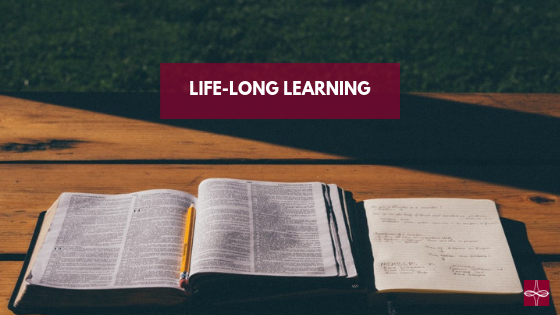

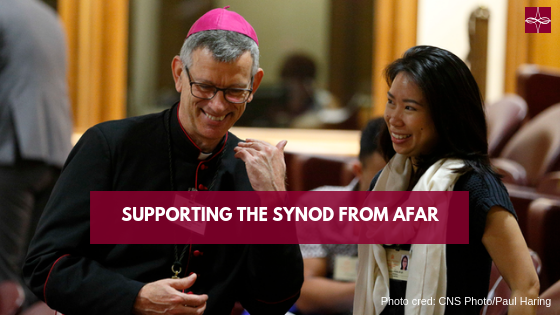

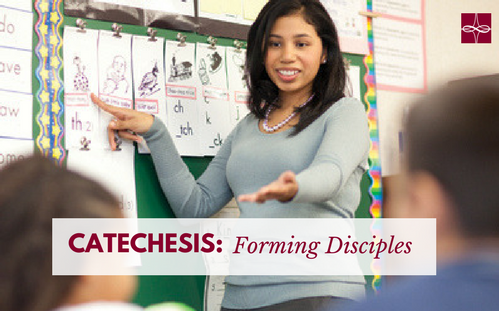

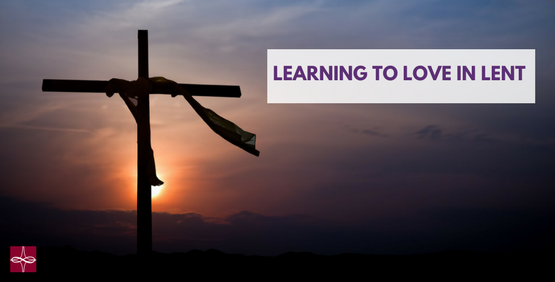



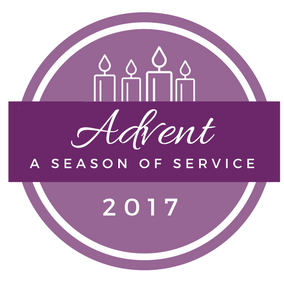
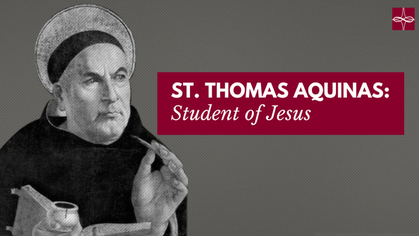
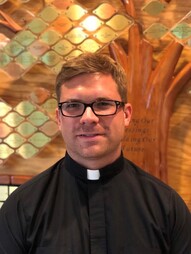
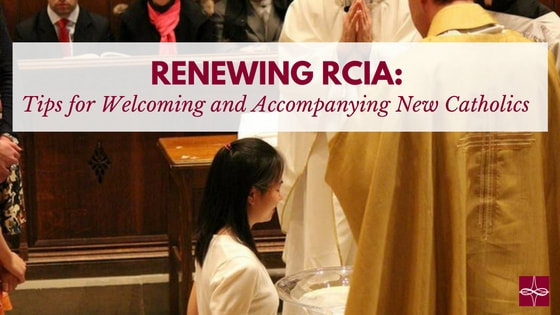

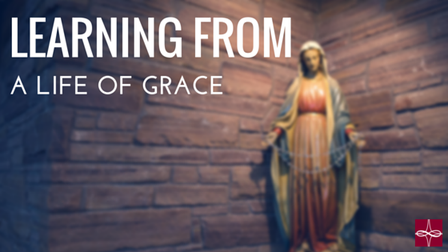
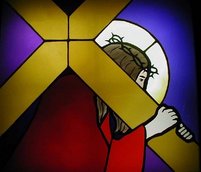



 RSS Feed
RSS Feed